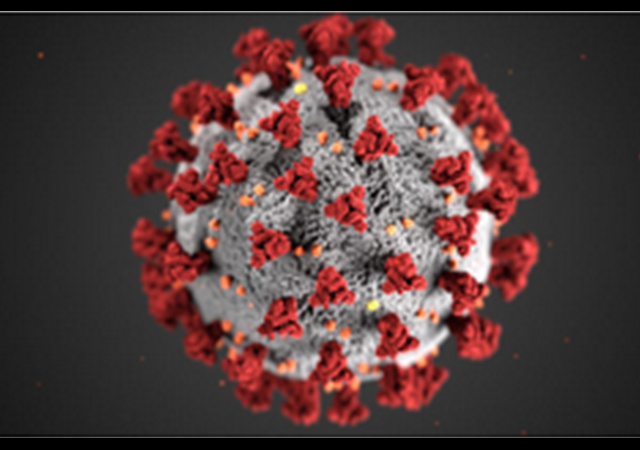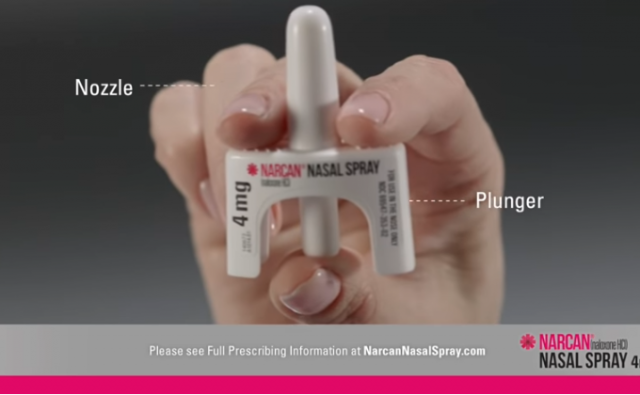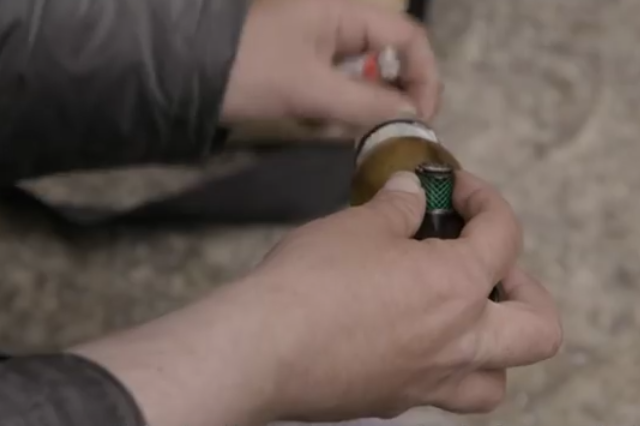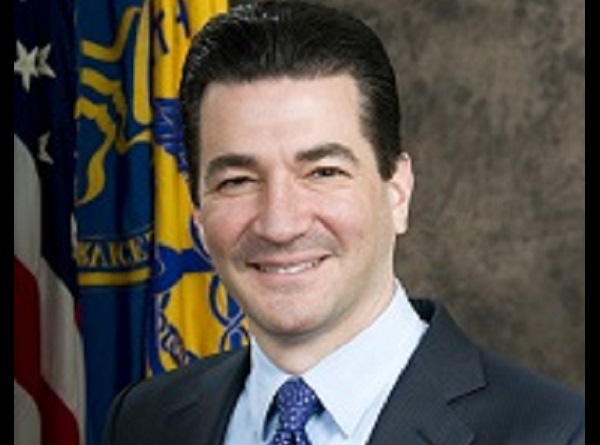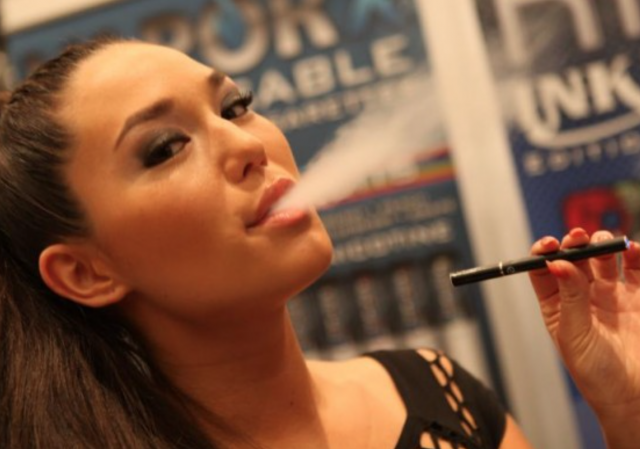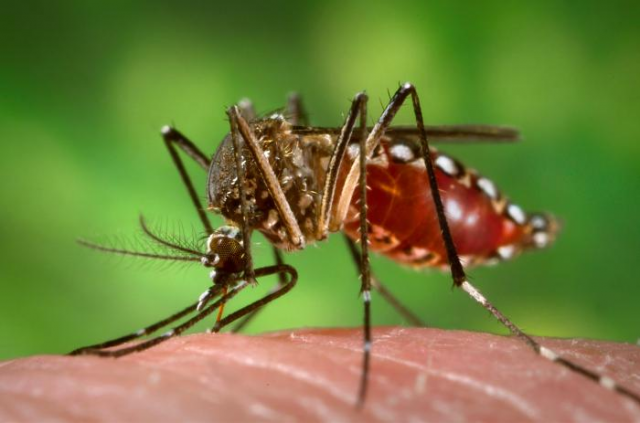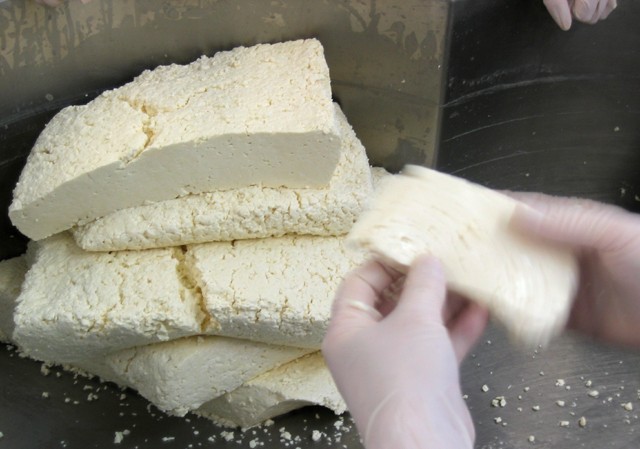FDA Tag
Wuhan Virus Watch: WHO Director Threatens Trump With ‘More Body Bags’ After POTUS Targets Agency’s Funding
Wuhan Virus Watch: FDA Issues Emergency Authorization of Two Anti-Malaria Drugs for Coronavirus treatment
Trial drug for pneumonia in cancer patients seeks FDA approval for COVID-19 clinical trials
Trump to FDA: Cut the Red Tape to Deploy Drugs to Coronavirus Patients
New pharmacy rules for opioid antidote results in fewer overdose deaths
New FDA warnings target synthetic marijuana laced with rat poison
FDA to crack down on “potentially harmful, unproven homeopathic drugs”
FDA Rules “Love” Not a Granola Ingredient
ABC News Settles With Beef Products Inc. in “Pink Slime” Defamation Case
“Pink Slime” Trial Begins: Beef Products, Inc. Sued ABC News for Food-libel, Defamation
"Beef Products says its sales plummeted and ground-beef processors canceled orders in droves"...
Trump may breathe new life into US e-cigarette industry
FDA is now going to save us from our hand soaps
The Food and Drug Administration has issued a final rule that throws water on claims that antibacterial soaps and washes are more effective than regular soap. The new rule bans antibacterial soaps and body washes containing certain ingredients from being marketed, because the ingredients were not proved to be safe and effective for long-term daily use, the FDA said Friday.
FDA’s New Rules Snuff Out E-cigarette Companies
A recent report by Sam Batkins of the American Action Forum brings the regulatory overreach of the Obama administration into focus. In nearly eight years, the Obama administration has issued 600 major regulations, which, again, are regulations with an annual economic impact of $100 million or more. Unfortunately, even with President Obama's time in office slowly coming to a close, the number of major regulations issued on his watch may exceed 650.
The War Against Zika Escalates
Cafes and art galleries in Miami’s Wynwood Art District would normally be bustling this week, even during some of the hottest days of the year, but with Zika virus spreading in the area, businesses like Wynwood Yard and Gallery 212 are keeping their doors shut. There were 16 cases of mosquito-transmitted Zika reported in the mainland U.S. as of Friday, and health officials have traced most to a square-mile area north of downtown Miami. Empty streets there reminded Gallery 212 owner Michael Perez of when he had to temporarily close a store in New York in 2001, after the Sept. 11 attacks. “I’m just like living my life all over again, with this Zika thing,” he said in a telephone interview. “It’s crazy, the streets are bare right now.”Florida is not only an important beacon of tourism for this nation; it is a critical swing state in this election. Therefore, it should surprise nobody that the normally slow-moving Food and Drug Administration just approved the releasing of mutant Zika-killing mosquitoes in the Sunshine State.
The government is coming for your handmade soap
- Personal Care Products Council (a trade association representing more than 600 companies in the industry)
- Johnson & Johnson (brands include Neutrogena, Aveeno, Clean & Clear, Lubriderm, Johnson’s baby products)
- Procter & Gamble (brands include Pantene, Head & Shoulders, Clairol, Herbal Essences, Secret, Dolce & Gabbana,
- Gucci, Ivory, Cover Girl, Olay, Sebastian Professional, Vidal Sassoon)
- Revlon (brands include Revlon, Almay, Mitchum)
- Estee Lauder (brands include Estée Lauder, Clinique, Origins, Tommy Hilfiger, MAC, La Mer, Bobbi Brown, Donna Karan, Aveda, Michael Kors)
- Unilever (brands include Dove, Tresemme, Lever, St. Ives, Noxzema, Nexxus, Pond’s, Suave, Sunsilk, Vaseline, Degree)
- L’Oreal (brands include L’Oréal Paris, Lancome, Giorgio Armani, Yves Saint Laurent, Kiehl’s, Essie, Garnier, Maybelline-New York, Vichy, La Roche-Posay, The Body Shop, Redken)
FDA says KIND bars can’t advertise as ‘healthy’
Then they came for the squeaky fresh cheese curds
“From advanced food safety and quality assurance requirements to more stringent environmental regulations that would require substantial capital investment,” said Gary Weihs, president of Proliant Dairy Ingredients, in a news release. “As a result of the changing environment, we have decided to close the Kalona facility. This is a difficult decision and we will continue to explore other opportunities for the facility.”
The facility employed 50 people. Impacted employees will receive compensation, severance pay and job placement assistance, the release said.
John Roetlin wouldn’t comment on the factory’s fate.
“It is what it is,” Roetlin said when contacted Thursday. He added the Kalona Cheese House, the factory’s store, will remain open despite the factory’s closure.
A group of Amish and Mennonite farmers established the operation as co-op in 1946, according to the website. The farmers hired Swiss immigrant John Roetlin, Sr. to run the factory, which opened in 1947.
This isn't just about cheese, it's about a community who will now be forced to find other ways to make memories.
Donations tax deductible
to the full extent allowed by law.
CONTRIBUTORS
- William A. Jacobson
Founder
- Kemberlee Kaye
Sr. Contrib Editor
- Mary Chastain
Contrib Editor
- Fuzzy Slippers
Weekend Editor
- Mike LaChance
Higher Ed
- Leslie Eastman
Author
- Vijeta Uniyal
Author
- Stacey Matthews
Author
- Jane Coleman
Author
- James Nault
Author
- Mandy Nagy
Editor Emerita
- Learn more about the Contributors



